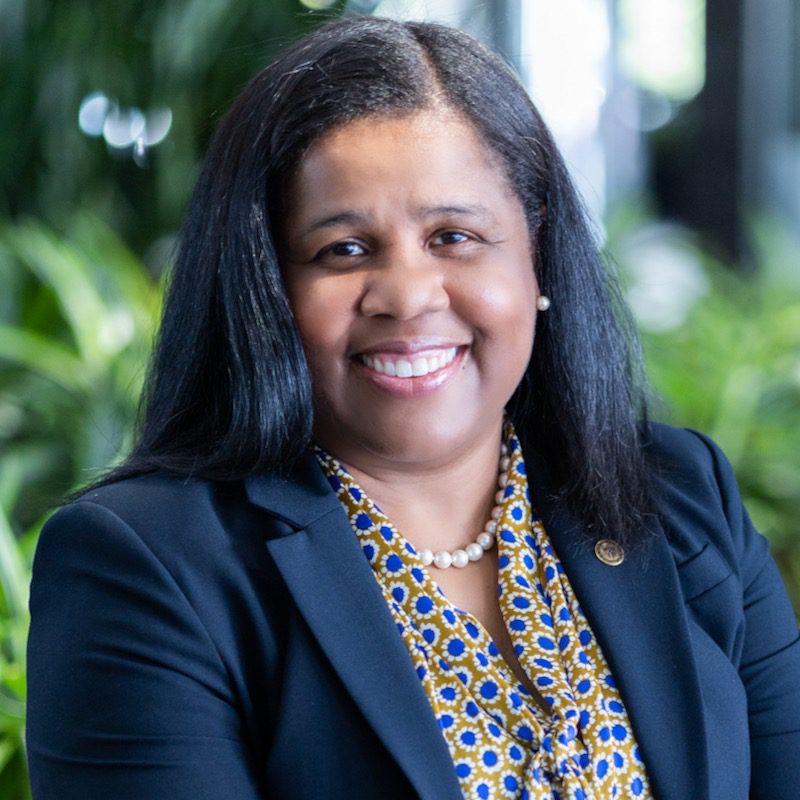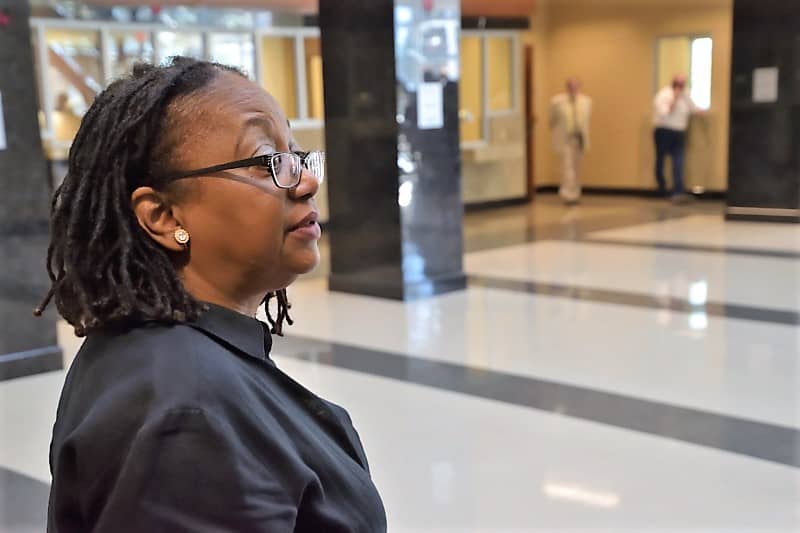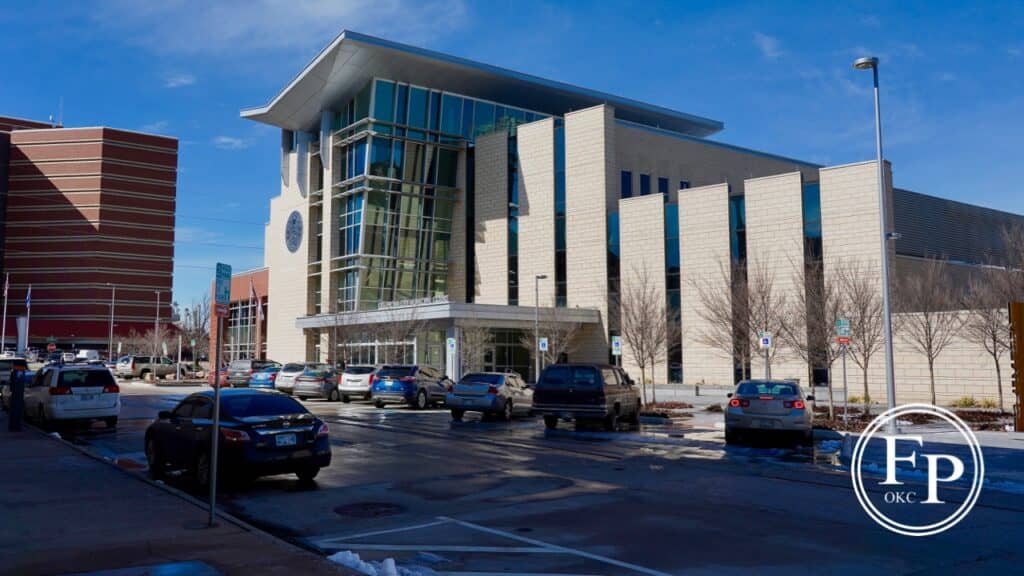Last Updated on July 9, 2022, 6:59 AM | Published: July 8, 2022
OKLAHOMA CITY (Free Press) — A lot has been made recently of the crowding and conditions at the Oklahoma County jail, including ten inmate deaths so far this year, leading to the push for a new, updated, larger jail facility and a major victory for its funding in the recent primary election.
But what is the city doing to keep its citizens out of jail to begin with?
In the face of policing and citation policies that many argue effectively criminalize poverty and homelessness in OKC, and with recent surveys showing homelessness firmly on the rise, how can the city’s local justice system work to reduce the number of people facing jail time?
The answer comes in the form of a collection of Municipal Court programs designed to substantially reduce court fees and spiraling ticket costs, dismissing some warrants entirely, and even holding official court hearings inside the much more welcoming and helpful WestTown Shelter with help from the Homeless Alliance.
Penalty Reduction
The first step toward reducing the mounting financial burden of fines, citations, and court costs came in July 2019 as the Penalty Reduction Program.
Keeping track of and pursuing outstanding warrants and unpaid fines costs the city tremendously in labor and man-hours, so there is a clear, vested interest in getting those cases squared away, even if it means accepting far less than the original amounts fined.

“What this program addresses are individuals that have Class A offenses, and that’s going to be your moving violations, your traffic offenses, and your criminal violations,” explained Municipal Court Administrator and Assistant City Manager LaShawn Thompson. “So, if you have a warrant because you fail to take action on your traffic ticket, you can owe somewhere in the neighborhood of $500, and then there was probably a ‘failure to appear’ charge in your case as well.”
Under the Penalty Reduction Program, which has been extended numerous times since 2019, anyone with an unpaid fine or warrant for a Class A offense dating before June 30th, 2020 can have their fees dramatically reduced, in most cases down to just $155.
According to Thompson, the program has been a resounding success.
“As of June 17th of this year,” she said, “since July 1st, 2019, when we first implemented the program, we’ve cleared 6066 cases in a ‘warrant status,’ all Class A offenses, and we’ve dismissed 2097 ‘failures to appear,’ with a collection value of about $956,000.”
Rule 8 hearing
Of course, not everyone can afford even $155 to clear their warrants.
“That’s still not a problem,” Thompson said. “We’re just going to schedule you for a Rule 8 hearing, which is to address individuals that don’t have the financial ability to pay. If you can’t pay, we still don’t want you to have a warrant.”
Thompson says that the Rule 8 process begins with a financial disclosure form that she describes as similar to a mortgage application, but not quite as in-depth.
“And if the judge makes a ruling that you don’t have the financial ability to pay it, then they have two options,” she explained. “They can just suspend all your fines and costs, or they can refer you to the community work program where you can work off your fines and fees.”
But the concept of a financial hardship extends beyond simply not having the money to pay.
“That community service cannot create a hardship again,” she said. “If you have children at home, and we assign you to do community service, we may have created a hardship again because you’d have to find a daycare or babysitter. So we really take a holistic approach and try to look at the individual situation to find out what is in the best interests of the individual. They still have a conviction on their record for whatever offense that they have. We just look at the money totally separately.”
Community Court at the Homeless Alliance WestTown Shelter
Even with these programs in place to help reduce or even dismiss fines and warrants, there is still a major roadblock keeping many people, in particular those experiencing homelessness, from coming to the court to address their cases.
“Oftentimes, one of the impediments to people resolving their issues with the court is that they’re literally afraid to come into the courthouse,” said Judge Phillippa James, Municipal Court judge and presiding judge of the Community Court Program. “That fear is there when you don’t want to come into the courthouse because you think you’re going to be arrested just because you owe us money. So I thought it was just an excellent idea to actually have a court someplace that was a safe place for them, a place where they were already because people were always helping them there.”

Created through the OKC City Council and law firm Crowe & Dunlevy after seeing the success of similar programs around the country, the Community Court Program was designed to bring a judge periodically into the WestTown Shelter. There, with the help of Homeless Alliance members and volunteers, citizens can get their outstanding legal issues squared away, often using the other programs described here, in a safer and more welcoming environment.
Though the program has been in place and running since 2020, pandemic precautions have meant that Judge James has never been able to oversee these cases in person, instead turning to remote work and correspondence to sort them out.
This month, that will change, as the first in-person hearings and sessions of the Community Court Program will finally take place at the WestTown Shelter.
Removing Barriers
Judge James herself is excited for what all of these programs mean to the potential betterment of the community as a whole, even if it means the city completely forgiving debts and forgetting owed money.
“On paper, it’s money, but it’s not real, because it’s money we wouldn’t be able to collect,” she explained. “But we can eliminate the barrier for people to things like maybe getting housing, because you know, a lot of times with some federally subsidized housing, you can’t even apply if you have some kind of warrant over your head. So we are eliminating these barriers to progress — positive progress — in their lives, so they can go on and get a job or get a place to live.”
Beyond just wanting to reduce crowding in the jail or administrative waste, Judge James wants these programs to help OKC residents to reclaim their lives.
“I think in the long run, it has a positive impact on the city as a whole,” she said. “We are helping these people to remove barriers from their lives so they can become just regular, ordinary citizens.”
If you are in need of these services, visit okc.gov, call (405) 297-3267, or visit the WestTown Shelter at 1724 NW 4th St. for more information and to find out if you are eligible.
Brett Fieldcamp has been covering arts, entertainment, news, housing, and culture in Oklahoma for nearly 15 years, writing for several local and state publications. He’s also a musician and songwriter and holds a certification as Specialist of Spirits from The Society of Wine Educators.











